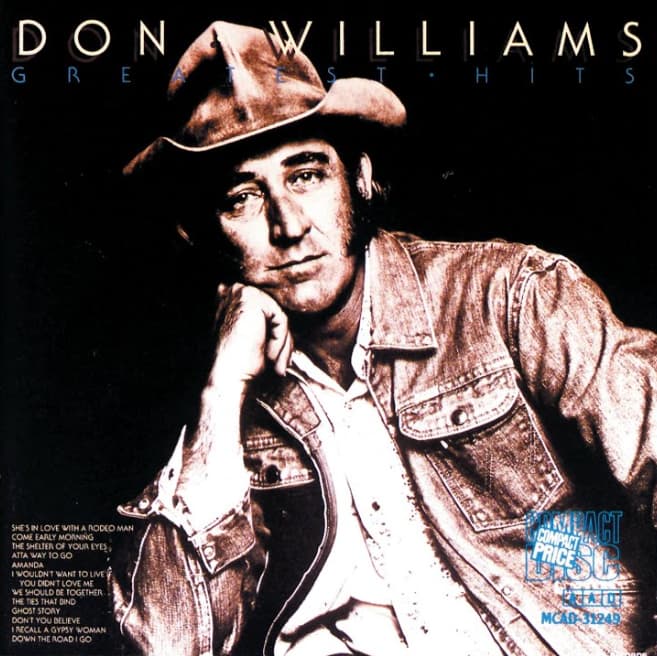
Don Williams’ “Rake and Ramblin’ Man”: The Enduring Allure of the Honest Drifter’s Life
When the conversation turns to Don Williams, we often talk about his tender ballads and those songs of steady, dependable love. But to truly appreciate the breadth of the “Gentle Giant’s” artistry, we have to look to the tracks that celebrate the other side of the country coin: the spirit of the open road, the refusal to be tied down, and the quiet pride of the working man. “Rake and Ramblin’ Man” is a perfect example, a warm, witty, and surprisingly self-aware embrace of the drifter’s existence, a lifestyle many of us dreamed about in our younger days before mortgages and responsibilities settled in.
Released in 1977, “Rake and Ramblin’ Man” was a key track from Don Williams’ critically acclaimed and hugely successful album, Country Boy. While it was never released as a standalone single the album’s major hit was the title track, “Country Boy” it quickly became a fan favorite and a staple of his live performances. The entire album, Country Boy, which featured this gem, was a commercial success that further cemented Williams’ status as an international star, proving that his laid-back, smooth style could convey the rugged themes of country life just as effectively as the genre’s harder-edged performers. Its absence from the singles chart shouldn’t diminish its importance; this song is a testament to the depth of his albums, where many of his best story-songs reside.
The story behind “Rake and Ramblin’ Man” is rooted in classic country themes, but the execution, thanks to Williams’ delivery, is uniquely gentle. Written by the highly regarded country songwriter Jim Rushing, the song is a playful, yet honest, self-description. The narrator is introducing himself, making no excuses for his nature. He’s not a villain, just a man who can’t be fenced in.
The lyrics paint a vivid, charming picture of a man who is perpetually on the move: a “rake” in the sense of a charming wanderer, not a heartbreaker, and a “ramblin’ man” by vocation. He admits his shortcomings upfront he’s “too old to cry” and “too young to slow down” and warns his potential love interest that he can offer no certainty, no fixed address, and no guaranteed tomorrow. He’s telling her, essentially, “I am who I am; take it or leave it, but don’t try to change me.”
The deeper meaning of the song, especially for older listeners, lies in its celebration of authenticity and freedom. It’s about the refusal to conform to the expectations of a settled life, a sentiment that tugs at the heart of anyone who has ever felt the squeeze of a monotonous routine. We hear the narrator’s subtle longing for connection, but his absolute need for freedom is stronger. He knows the road, the “cajun moon” and the “rocky mountain rain,” better than he knows a single bedroom. The song gives voice to that powerful, restless urge that some people simply cannot ignore the call to see what’s over the next ridge.
Williams’ interpretation is what makes this tune truly special. With his signature unhurried rhythm and soothing voice, he takes what could have been a defensive or overly dramatic anthem and turns it into a simple, matter-of-fact declaration. There’s no bitterness, just an acceptance of destiny. For those of us who have long since traded in our rambling boots for slippers, the song offers a potent, nostalgic glimpse back at the freedom we once chased or, perhaps, the freedom we were wise enough to choose. It’s a classic Don Williams song because it tells a human story with honesty, dignity, and that unmistakable, gentle touch. It reminds us that every life path, even the one that keeps moving, has its own unique integrity.